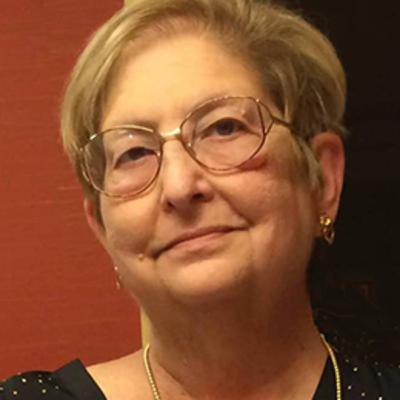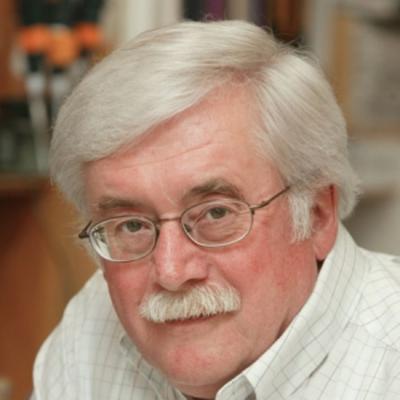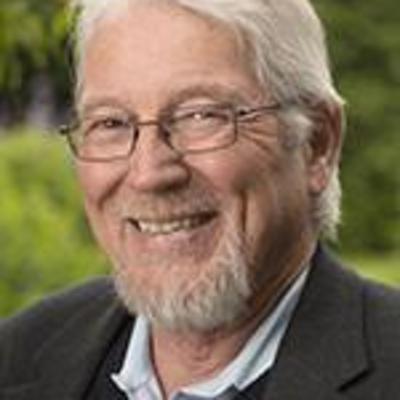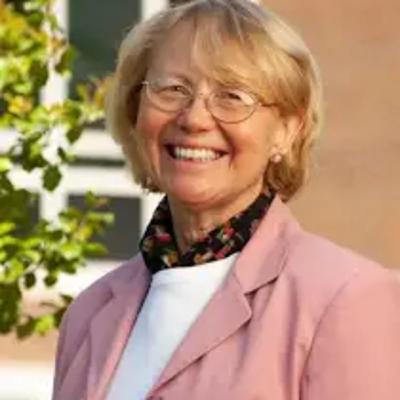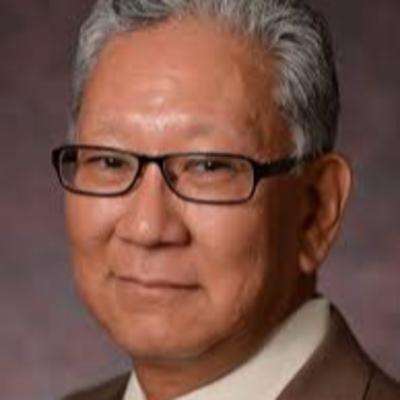Discover Garden State Microbiome
Garden State Microbiome

Garden State Microbiome
Author: Hosted by Ray Sullivan, produced by Will Stolting
Subscribed: 1Played: 1Subscribe
Share
© Hosted by Ray Sullivan, produced by Will Stolting
Description
The Garden State Microbiome explores New Jersey’s rich microbiology scene across academia, industry, and government. Meet the microbiologists driving discoveries at Rutgers, Princeton, Center for Discovery & Innovation, Rowan, Wm Paterson, Montclair State, Seton Hall, NJIT, and biotech giants like Merck, Pfizer, Bristol-Myers, and J&J. In New Jersey, microbiology connects healthcare, environment, and biotech in powerful ways. Join us in discovering why it’s a small state with a big microbiology—brought to you by the Theobald Smith Society, the NJ branch of the American Society for Microbiology
8 Episodes
Reverse
In this episode of The Garden State Microbiome, we’re joined by Dr. Lynn Silver, a microbiologist whose career spans the evolution of modern antibiotic discovery—from early bench science to leading antibacterial teams at Merck & Co., and later, advising biotech firms across the globe.Dr. Silver shares lessons from decades spent developing antibacterial compounds, emphasizing that single-target drugs often fail the test of time—they're too easy for bacteria to outwit. Instead, the future lies in multi-target molecules and strategic antibiotic combinations. Her insights explain why some drugs succeed while others collapse under resistance pressure.She also reflects candidly on why she left Merck. As managerial responsibilities grew and the problem-solving joy of scientific inquiry diminished, the tradeoff no longer felt worth it. But consulting has been a different story. For over 20 years, Dr. Silver has helped startups and research organizations ask better questions and find smarter answers about antibiotics—not always lucrative, but deeply fulfilling and intellectually rich.This episode offers both a history lesson and a personal one: about staying engaged, contributing meaningfully, and finding joy in lifelong learning—even after leaving the corporate lab bench.Guest: Dr. Lynn SilverFormer Senior Principal Scientist, Merck & Co. Consultant in antibacterial discovery and development Global expert in antibiotic resistance
In this episode of The Garden State Microbiome, we sit down with Dr. Tom Silhavy, a molecular biology legend whose pioneering research has shaped how we understand bacterial membranes, protein localization, and gene regulation in Escherichia coli.Tom takes us on a remarkable journey, starting with his early days in Big Rapids, Michigan, where he studied pharmacy at Ferris State College before discovering his passion for biochemistry through undergraduate research. From there, we follow his scientific path to Harvard Medical School, where he earned his PhD working in Winfried Boos' lab, and then onto a transformative postdoc in the lab of molecular biology pioneer Jonathan Beckwith.We explore how Tom helped develop the use of gene fusions to study protein export, and how his research career evolved as Director of the Laboratory of Genetics and Recombinant DNA at NCI-Frederick before becoming a founding member of Princeton’s Department of Molecular Biology.Tom reflects on mentoring over 80 trainees, managing a long-running research program on the Gram-negative cell envelope, and his decade-long tenure as Editor-in-Chief of the Journal of Bacteriology. Along the way, we hear his candid thoughts on science publishing, lab culture, and the enduring need for publicly funded science.Whether you're a student, a postdoc, or a seasoned researcher, this episode offers an inspiring look into a life devoted to discovery, mentorship, and the microbial world.Dr. Thomas J. Silhavy is the Warner-Lambert Parke-Davis Professor of Molecular Biology at Princeton University. He is an elected member of the National Academy of Sciences and the American Academy of Arts and Sciences, with over 275 publications. He was the 2019 Waksman Lecturer for the Theobald Smith Society. His lab focuses on the structure, function, and regulation of the Gram-negative bacterial cell envelope.
In this episode of The Garden State Microbiome, we are honored to host Dr. Robert M. Goodman, a distinguished plant biologist and virologist whose career has significantly influenced the fields of plant pathology, microbial ecology, and agricultural biotechnology. Dr. Goodman served as the Executive Dean of Agriculture and Natural Resources at Rutgers University from 2005 to 2020 and was named University Professor and Executive Dean Emeritus in 2020 (deenr.rutgers.edu).Dr. Goodman's academic journey began at Johns Hopkins University, followed by a B.S. in Plant Sciences and a Ph.D. in Plant Pathology from Cornell University. His early research led to the discovery and characterization of Geminiviruses, the first-known circular, single-stranded DNA viruses in plants. Transitioning to the private sector, he became Vice President and later Executive Vice President for Research and Development at Calgene, Inc., a pioneer in plant biotechnology.Returning to academia, Dr. Goodman joined the University of Wisconsin–Madison, where he and his team conducted groundbreaking work in microbial ecology, co-developing approaches that laid the foundation for the field now known as metagenomics. At Rutgers, he not only led global agricultural initiatives, such as the Collaborative Crop Research Program funded by the McKnight Foundation, but also prioritized the growth of microbiome sciences. As Executive Dean, he initiated strategic faculty hiring across multiple departments to build excellence in microbiome research, helping to position Rutgers as a leader in this rapidly evolving field.Join us as Dr. Goodman reflects on his multifaceted career, discusses the evolution of plant-microbe research, shares insights into microbiome science at Rutgers, and explores the future of sustainable agriculture and global food security.
In this episode of The Garden State Microbiome, we are honored to feature Dr. Bradley I.Hillman, Professor Emeritus in the Department of Plant Biology at Rutgers University. Dr.Hillman is a leading figure in fungal virology, plant pathology, and the molecular biology ofplant and fungal viruses, with a distinguished career spanning more than 30 years.Dr. Hillman’s research has significantly advanced our understanding of how fungal virusesinfluence plant diseases, particularly in economically important crops like chestnut, hazelnut, andblueberry. His pioneering studies on the chestnut blight fungus (Cryphonectria parasitica) andits associated hypoviruses helped reveal how viruses can attenuate fungal virulence, offeringinsights into biological control strategies. His work sequencing fungal genomes,including Anisogramma anomala, the causal agent of eastern filbert blight, has provided criticalresources for the scientific community.A recognized leader beyond his laboratory, Dr. Hillman served as Director for Research andSenior Associate Director of the New Jersey Agricultural Experiment Station for nearly 15 years,helping guide statewide agricultural research and policy. He has been deeply involved with theInternational Committee on the Taxonomy of Viruses, chairing subcommittees and contributingto classifying fungal viruses globally. His editorial work with journals like Phytopathology andVirus Research has shaped scientific communication in virology and plant pathology.Throughout his career, Dr. Hillman has been dedicated to education and mentorship, teachingundergraduate and graduate courses in virology and plant pathology at Rutgers and mentoringnumerous students who have gone on to influential careers. His service on faculty searchcommittees was pivotal in building strong academic departments at Rutgers and Cook College.Dr. Hillman’s contributions have been recognized with numerous honors, including election as aFellow of the American Phytopathological Society (APS) and receiving the Award of Merit fromthe Northeast Division of APS.Join us as Dr. Hillman reflects on his journey through the evolving landscapes of virology, plantpathology, and academia. We discuss his research breakthroughs, his views on the future offungal virus research, and his advice for the next generation of microbiologists.
Joan W. Bennett is a Distinguished Plant Biology and Pathology Professor at Rutgers University. She is a pioneer in fungal genetics, recognized internationally for her groundbreaking research on fungal toxins, volatile organic compounds, and the genomics of Aspergillus and Penicillium species.Throughout her distinguished career, Dr. Bennett has significantly contributed to understanding how fungi interact with their environments, how mycotoxins impact food safety and public health, and how fungal VOCs may influence indoor air quality. Her work investigating mold contamination in flood-damaged homes after Hurricane Katrina shifted national conversations about "sick building syndrome" and indoor mold exposure.Beyond her research, Dr. Bennett has been a transformative leader in the scientific community. She served as President of the American Society for Microbiology (ASM). She held significant leadership roles with the National Research Council, the Society for Industrial Microbiology and Biotechnology, and the American Academy of Microbiology. A fierce advocate for gender equity in STEM, she has worked tirelessly to promote the advancement of women in science, including serving as Associate Vice President for the Promotion of Women in Science at Rutgers.Dr. Bennett is a National Academy of Sciences member and has received numerous accolades, including the Alice C. Evans Award for the Advancement of Women from ASM, the Distinguished Mycologist Award from the Mycological Society of America in 2024, and the Theobald Smith Society’s 2008 Honorary Waksman Lecturer.Join us as Dr. Bennett shares her remarkable journey from her early studies at Upsala College and the University of Chicago to becoming one of the foremost experts in fungal biology. We discuss her scientific discoveries, thoughts on biotechnology's future, and her lifelong commitment to mentoring the next generation of microbiologists.
In this episode of The Garden State Microbiome, we are delighted to feature Dr. Donald Y. Kobayashi, Professor and Chair of the Department of Plant Biology at Rutgers University. Dr. Kobayashi is a nationally recognized expert in plant pathology, microbiology, and biological control, with a distinguished career devoted to understanding bacterial-plant interactions and microbial solutions to agricultural challenges.Dr. Kobayashi’s research has made major contributions to the biological control of plant diseases, including pioneering work on Lysobacter enzymogenes, a bacterium with the remarkable ability to suppress fungal pathogens. His investigations into bacterial-fungal interactions, rhizosphere ecology, and the genomics of plant-associated bacteria have opened new frontiers in sustainable agriculture. He has been particularly influential in advancing biological control strategies for turfgrass, cranberry, and vegetable crops, as well as studying emerging bacterial diseases affecting important crops like basil, parsley, and hazelnut.In addition to his research achievements, Dr. Kobayashi has demonstrated extensive leadership at Rutgers, serving as Chair of the Department of Plant Biology, Director of multiple undergraduate programs, and an Executive Committee member for over a decade. His service as Senior Editor for Phytopathology and his many editorial roles have helped shape scientific discourse in plant pathology worldwide.Dr. Kobayashi has been recognized with multiple awards for teaching excellence and service, including the Rutgers Educational Opportunity Fund Distinguished Staff Award and the Cook College Student Leadership Award. His mentorship has guided countless students, many of whom now play critical roles in plant science and microbiology.Join us as Dr. Kobayashi reflects on his research journey, shares insights into the future of plant-microbe interactions, discusses leadership in science education, and offers advice to young scientists seeking to make their mark in the fields of microbiology and plant pathology.
Max Häggblom is the Distinguished Professor and Chair of the Department of Biochemistry and Microbiology at Rutgers University. He is an internationally recognized leader in environmental microbiology. Originally from Finland, Dr. Häggblom earned his Ph.D. from the University of Helsinki before making his mark in the U.S., first at New York University and later at Rutgers, where he has been a key faculty member since 1993. His research focuses on microbial biodegradation and biotransformation of environmental pollutants—work that is critical for understanding and mitigating the impact of toxic compounds in soil and water.Dr. Häggblom’s expertise extends from Arctictundra microbiomes to industrial contamination sites, exploring how bacteria can help clean up pollutants such as chlorinated chemicals, petroleum hydrocarbons, and even pharmaceutical residues. His work has been widelypublished and he has received numerous accolades, including election as a Fellow of the American Academy of Microbiology and the American Association for the Advancement of Science. He was the 2010 Theobald Smith Society Honorary Waksman Lecturer and a past president of the society.Beyond research, Dr. Häggblom is a dedicated educator and mentor - shaping the next generation of microbiologists through his leadership at Rutgers and his editorial role as Chief Editor of FEMS Microbiology Ecology. His passion for microbial ecology has taken him around the world collaborating with scientists in China, Finland, and beyond.
Dr. Lee Kerkhof is a renowned marine microbiologist at Rutgers University, where he has been a part of the Department of Marine and Coastal Sciences since 1994. With a nearly three-decade-long career, he has significantly contributed to our understanding of microbial life in marine environments.Dr. Kerkhof’s academic journey began with a B.Sc. in Marine Science and Biochemistry from the University of California, Berkeley, followed by a Ph.D. in Marine Biology from the prestigious Scripps Institution of Oceanography at UC San Diego. His early work laid the groundwork for his innovative research on microbial nucleic acids, a focus that continues to define his career.Over the years, Professor Kerkhof has been at the forefront of groundbreaking studies on the role of microbes in biogeochemical cycles, particularly in marine and coastal systems. His research has touched on topics as diverse as microbial dehalogenation, the impact of climate change on tundra microbiomes, and even the microbial influences on respiratory health. Notably, his work often involves cutting-edge DNA sequencing technologies, such as the Oxford Nanopore MinION, which he’s been using to analyze complex microbiomes in novel and portable ways.His commitment to education matches Dr. Kerkhof’s dedication to research. At Rutgers, he teaches courses on microbial life, biological oceanography, and marine microbiology, where he shares his passion for the microscopic world with the next generation of scientists.With over 90 publications and numerous prestigious research grants to his name, including projects funded by the National Science Foundation, the Department of Energy, and NASA, Dr. Kerkhof has truly shaped the field of marine microbiology. Beyond his research, he is a sought- after speaker, having presented his findings at conferences and institutions around the globe, from Hamburg to Beijing, from Seoul back to New Brunswick.Lee was the Theobald Smith Society’s 2024 Waksman Award Lecturer.In today’s episode, we’ll dive into Dr. Kerkhof’s fascinating work, exploring his experiences and insights into how microbes are not just inhabitants of our world but critical drivers of its processes. Get ready to learn about the unseen forces shaping our planet’s oceans and beyond as we speak with one of the leading voices in microbiology here in the Garden State.


